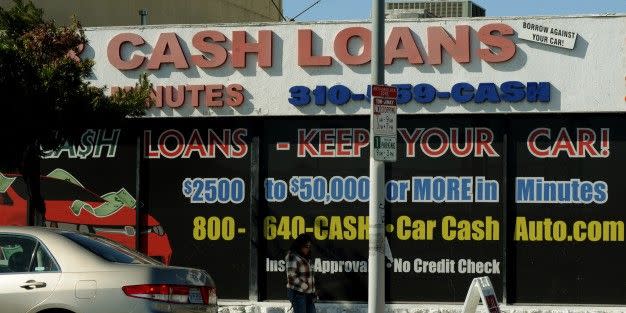How to Get the Best Rate on an Auto Loan

You may have finally found the perfect automobile. It is the make and model you want, with the right options, and even the right color. Now comes closing the deal on it. If you’re not flush with cash—in other words, you seek a loan—it’s important to know what you’re up against. Here are seven things to do if you want to get the best rate on an auto loan:
1. Take a Step Back
You can’t just go into the dealership and agree to buy the vehicle, at least not if you want a decent price and a fair loan rate. You need to take a step back and see what kind of financing is out there.
2. Know the Terminology
Before you call or visit lenders, brush up on the difference between interest rate and APR. The interest rate refers to the added percentage that it will cost to borrow the money. The APR, however, is the actual annual interest rate factoring in fees and other costs related to the loan.
3. Shop Around
You may think that, because dealers tout their relationships with multiple lenders, that means a dealer will get you the best rate on an auto loan. Often, that is not the case. They’re not obligated to give you the best rate, and they are prone to marking up loans, said Chris Kukla, executive vice president of the Center for Responsible Lending. In general, most states don’t require dealers to disclose the markups they tack onto loans, Kukla said, and the truth is that most dealers make more profit from the financing and insurance side of their business than on the selling price of the car or truck.
The good news is, if you have some patience and decent credit, you can shop around at banks and credit unions for the best rate. Get preapproved for the MSRP of the vehicle. Then you can go to the dealer ready to haggle and buy. If your credit is not too hot, you may have a more difficult time finding a lender, but that doesn’t mean you shouldn’t at least try to look. “You might hear ‘no’ more often, but if you get that ‘yes,’ you could save a substantial amount of money,” Kukla said.
4. Get Loan Shopping Done in a Week
While it is a good idea to shop around, the consensus among consumer advocates and credit bureaus is that if you keep the auto-loan credit queries to within a week, your score should not be impacted. “Credit scoring systems typically count auto-loan inquiries within a 14-day period as a single inquiry,” said Rod Griffin, Experian’s director of public education. But to be absolutely certain, try to limit your loan shopping to a week.
5. Go to the Dealer
Once you’ve found agreeable financing, head back to the dealer ready to negotiate a price for the car. You should never accept the first offer you’re given. And you should never, ever tell the dealer how much you want to pay monthly, Kukla said. This is a common tactic used by dealers to slide a bunch of back-end fees into the loan, since you already agreed to pay X dollars per month.
Do the math on the vehicle price, monthly payment, and loan term. The dealer may surprise you by giving you a better rate on the loan. If so, still be leery of subsequent add-ons—everything from warranties to prepaid maintenance to wheel protection to key-loss insurance. “All of them are incredibly expensive,” Kukla said of the add-ons. “Some offer value; a lot of them don’t.”
6. Take Another Step Back
If you’re like us, when you’re ready to buy a new car or truck, patience is a fleeting virtue. It can be maddeningly difficult to walk off the lot without that automobile in your possession. But once you’ve finally got the paperwork ready to go, it is highly recommended that you bring the documents home and spend some time looking them over. This also will show the dealer that you may not yet be sold on the vehicle. Perhaps another last-minute price drop is then in your future? But what if someone else comes along and snatches that car or truck in the meantime? We know, we know. But try to sleep on it. “There’s a lot of benefit to walking off the lot,” Kukla said.
7. Close the Deal
After some time making sure the paperwork is above board, followed by a good night’s sleep, you’ll be more levelheaded, clear-eyed, and ready to finance a vehicle. For many of us, buying a car can be an emotional endeavor, and this can make it all the more difficult to remain patient when you’re ready to get a new one. But a little restraint can save a lot of money.
You Might Also Like

 Yahoo Autos
Yahoo Autos 